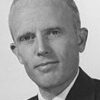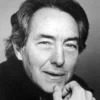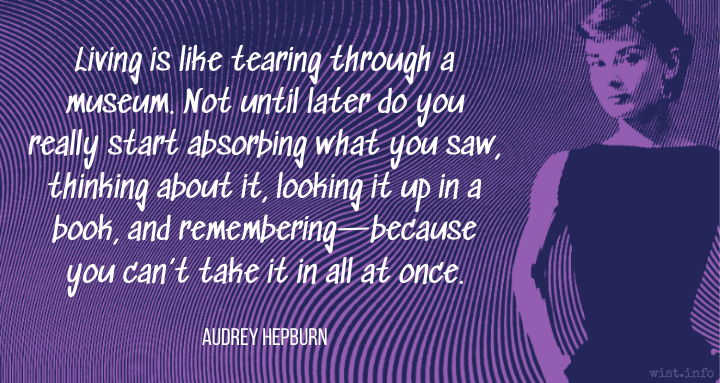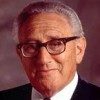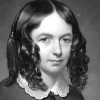Usbek, it seems to me that we always judge things by secretly relating them to our own concerns. I am not surprised that black men envision the devil as being a brilliant white color, and that they picture their gods as being black as coal — nor that certain peoples picture Venus as having breasts that hang down to her thighs — nor that all idolaters have always pictured their gods in human form, ascribing to them all their own predilections. It has been well said that if triangles had a god, they would imagine him as having three sides.
[Il me semble, Usbek, que nous ne jugeons jamais des choses que par un retour secret que nous faisons sur nous-mêmes. Je ne suis pas surpris que les nègres peignent le diable d’une blancheur éblouissante et leurs dieux noirs comme du charbon ; que la Vénus de certains peuples ait des mamelles qui lui pendent jusqu’aux cuisses ; et qu’enfin tous les idolâtres aient représenté leurs dieux avec une figure humaine, et leur aient fait part de toutes leurs inclinations. On a dit fort bien que, si les triangles faisoient un dieu, ils lui donneroient trois côtés.]
Charles-Lewis de Secondat, Baron de Montesquieu (1689-1755) French political philosopher
Persian Letters [Lettres Persanes], Letter 59, Rica to Usbek (1721) [tr. MacKenzie (2014)]
(Source)
The triangles reference is often attributed directly to Montesquieu, though it's referenced here as having another origin. It is sometimes cited as a Jewish or Yiddish proverb.
Some early editions leave out the triangle metaphor altogether, thinking it alludes to the Trinity.
See also Voltaire.
(Source (French)). Alternate translations:
It is my Opinion, Usbek, that we never judge of Things but with a private View to our selves. I am not surprised that the Negroes shou'd paint the Devil of the most glaring Whiteness, and their Gods as black as a Coal; that the Venus of some Nations shou'd have Breasts hanging down to her very Thighs; and lastly, that all Idolaters have represented their Gods with a Human Figure, and given them all their own Inclinations. It has been said with good Reason that if the Triangles were to make a God they wou'd give him three Sides.
[tr. Ozell (1736), No. 57]
It appears to me, Usbek, that we never judge of things but with a private view to ourselves. I do not wonder that the Negroes paint the devil in the most glaring whiteness, and their gods as black as a coal; that the Venus of some nations should be represented with breasts pendent to her thighs; nor indeed that all idolaters have made their gods of human figures, and have ascribed to them all their own passions.
[tr. Floyd (1762)]
It seems to me, Usbek, that our opinions are always influenced by a secret application to ourselves. I am not surprised that Negroes paint the devil with a complexion of dazzling whiteness, and their gods as black as coal; that the Venus of certain races has breasts that hang down to her thighs; and finally, that all idolaters have represented their gods in the likeness of men, and have ascribed to them all their own passions. It has been very well said, that if triangles were to make to themselves gods, they would give them three sides.
[tr. Davidson (1891)]
It seems to me, Usbek, that our judgment of things is always controlled by the secret influence they have had on our own actions. I am not surprised that the negroes paint the devil with a face of dazzling whiteness, and their gods as black as coal; that the Venus of certain tribes has breasts that hang down to her thighs; and, in fine, that all nations have represented their gods in the human form, and have supposed them to be imbued with their own passions. It has been very well said that if triangles were to make a god for themselves, they would give him three sides.
[tr. Betts (1897)]
It seems to me, Usbek, that we judge things only by applying them secretly to ourselves. I am not surprised that Negroes paint the devil in dazzling white and their gods in carbon black; or that the Venus of certain peoples has breasts that hang to her thighs; or, finally, that all idolaters have represented their gods in human shape and assign to them all their own attributes. It is well said that if triangles were to create a god, they would describe him with three sides.
[tr. Healy (1964)]
It seems to me, Usbek, that we never judge anything without secretly considering it in relation to our own self. I am not surprised that black men depict the devil as brilliantly white, and their own gods as coal-black, that the Venus of certain peoples has breasts that hang down to her thighs, and, in short, that all idolaters have depicted their gods with human faces, and have endowed them with their own propensities. It has been quite correctly observed that if triangles were to make themselves a god, they would give him three sides.
[tr. Mauldon (2008), No. 57]
Quotations about:
reflection
Note not all quotations have been tagged, so Search may find additional quotes on this topic.
Learning without thought ends in a blur. Thought without learning will soon totter.
[學而不思則罔、思而不學則殆。]Confucius (c. 551- c. 479 BC) Chinese philosopher, sage, politician [孔夫子 (Kǒng Fūzǐ, K'ung Fu-tzu, K'ung Fu Tse), 孔子 (Kǒngzǐ, Chungni), 孔丘 (Kǒng Qiū, K'ung Ch'iu)]
The Analects [論語, 论语, Lúnyǔ], Book 2, verse 15 (2.15) (6th C. BC – AD 3rd C.) [tr. Ware (1950)]
(Source)
Many (but not all) translators suggest that learning/study here is not general academics, but examining and maintaining the ancient traditions.
(Source (Chinese)). Alternate translations:
Learning without thought is labour lost; thought without learning is perilous.
[tr. Legge (1861)]
Learning with [sic] thought is a snare; thought without learning is a danger.
[tr. Jennings (1895)]
Study without thinking is labour lost. Thinking without study is perilous.
[tr. Ku Hung-Ming (1898)]
Learning without thought is useless. Thought without learning is dangerous.
[tr. Soothill (1910)]
Education without meditation is useless. Meditation without education is risky.
[tr. Soothill (1910), alternate]
Research without thought is a mere net and entanglement: thought without gathering data, a peril.
[tr. Pound (1933)]
He who learns but does not think, is lost. He who thinks but does not learn is in great danger.
[tr. Waley (1938)]
If one learns from others but does not think, one will be bewildered. If, on the other hand, one thinks but does not learn from others, one will be in peril.
[tr. Lau (1979)]
If one studies but does not think, one is caught in a trap. If one thinks but does not study, one is in peril.
[tr. Dawson (1993)]
To study without thinking is futile. To think without studying is dangerous.
[tr. Leys (1997)]
Learning without thinking is fruitless; thinking without learning is perplexing.
[tr. Huang (1997); additional translations.]
Studying but not thinking, it is confused; Thinking but not studying, it is dangerous.
[tr. Cai/Yu (1998)]
Learning without due reflection leads to perplexity; reflection without learning leads to perilous circumstances.
[tr. Ames/Rosemont (1998)]
If he studies and does not reflect, he will be rigid. If he reflects but does not study, he will be shaky.
[tr. Brooks/Brooks (1998)]
To learn and never think -- that's delusion. But to think and never learn -- that is perilous indeed!
[tr. Hinton (1998)]
If you learn without thinking about what you have learned, you will be lost. If you think without learning, however, you will fall into danger.
[tr. Slingerland (2003)]
Learning without thought is pointless. Thought without learning is dangerous.
[tr. Watson (2007)]
If you learn but do not think, you will be dazed. If you think but do not learn, you will be in danger.
[tr. Chin (2014)]
Learning from books without critical thinking results in confusion. Thinking vacuously without learning from books is perilous.
[tr. Li (2020)]
Self-respect cannot be hunted. It cannot be purchased. It is never for sale. It cannot be fabricated out of public relations. It comes to us when we are alone, in quiet moments, in quiet places, when we suddenly realize that, knowing the good, we have done it; knowing the beautiful, we have served it; knowing the truth, we have spoken it.
Whitney Griswold (1906–1963) American historian, educator [Alfred Whitney Griswold]
“Society’s Need for Man,” Baccalaureate Address, Yale University (1957-06-09)
(Source)
Your computer is a backup of your soul, a multilayered, menu-driven representation of who you are, who you care about, and how you sin.
Michael Marshall Smith (b. 1965) English author, screenwriter [writes as Michael Marshall, M. M. Smith, Michael Rutger]
The Lonely Dead [The Upright Man], ch. 11 (2004) [as Michael Marshall]
(Source)
Behavior is a mirror in which everyone displays his own image.
[Das Betragen ist ein Spiegel in welchem jeder sein Bild zeigt.]
Johann Wolfgang von Goethe (1749-1832) German poet, statesman, scientist
Elective Affinities [Die Wahlverwandtschaften], Part 2, ch. 5, “From Ottilie’s Journal [Aus Ottiliens Tagebuche]” (1809) [tr. Hollingdale (1971)]
(Source)
(Source (German)). Alternate translation:
Behavior is a mirror in which every one shows his image.
[Niles ed. (1872)]
The difference between narcissism and self-love is a matter of depth. Narcissus falls in love not with the self, but with an image or reflection of the self — with the persona, the mask. The narcissist sees himself through the eyes of another, changes his lifestyle to conform with what is admired by others, tailors his behavior and expression of feelings to what will please others. Narcissism is eye trouble, voluntary blindness, an agreement to keep up appearances (hence the importance of “style”) and not to look beneath the surface.
Sam Keen (b. 1931) American author, professor, philosopher
The Passionate Life, ch. 8 (1983)
(Source)
The Intellect engages us in the pursuit of Truth. The Passions impel us to Action.
[Cogitatio in vero exquirendo maxime versatur, appetitus impellit ad agendum.]
Marcus Tullius Cicero (106-43 BC) Roman orator, statesman, philosopher
De Officiis [On Duties; On Moral Duty; The Offices], Book 1, ch. 35 (1.35) / sec. 132 (44 BC) [Barnes (1814)]
(Source (Latin)). Alternate translation:
Reflection is chiefly employed in the investigation of truth, appetite impels to action.
[tr. McCartney (1798)]
Reflection chiefly applies itself in the search of truth. Appetite prompts us to action.
[tr. Edmonds (1865)]
Thought is occupied chiefly in seeking the truth; impulse urges to action.
[tr. Peabody (1883)]
Thought is employed in the discovery of truth, appetite impels to action.
[tr. Gardiner (1899)]
Thought is occupied chiefly with the discovery of truth; impulse prompts to action.
[tr. Miller (1913)]
Thought is mostly expended in seeking out the truth, passion urges men to action.
[tr. Edinger (1974)]
In the middle of the night, things well up from the past that are not always cause for rejoicing — the unsolved, the painful encounters, the mistakes, the reasons for shame or woe. But all, good or bad, give me food for thought, food to grow on.
May Sarton (1912-1995) Belgian-American poet, novelist, memoirist [pen name of Eleanore Marie Sarton]
At Seventy (1984)
(Source)
Yet a personal God can become a grave liability. He can be a mere idol carved in our own image, a projection of our limited needs. fears and desires. We can assume that he loves what we love and hates what we hate, endorsing our prejudices instead of compelling us to transcend them. … Instead of pulling us beyond our limitations, “he” can encourage us to remain complacently within them; “he” can make us a cruel, callous, self-satisfied and partial as “he” seems to be. Instead of inspiring the compassion that should characterize all advanced religion, “he” can encourage us to judge, condemn and marginalize.
Karen Armstrong (b. 1944) British author, comparative religion scholar
A History of God, ch. 7 “The God of the Mystics” (1993)
(Source)
Living is like tearing through a museum. Not until later do you really start absorbing what you saw, thinking about it, looking it up in a book, and remembering — because you can’t take it in all at once.
Audrey Hepburn (1929-1993) Belgian-English actress
Quoted in David Hofstede, Audrey Hepburn: A Bio-bibliography (1994)
(Source)
Perhaps a man’s character is like a tree, and his reputation like its shadow; the shadow is what we think of it; the tree is the real thing.
Take a book, the poorest one written, but read it with the passion that it is the only book you will read — ultimately you will read everything out of it, that is, as much as there was in yourself, and you could never get more out of reading, even if you read the best of books.
The convictions that leaders have formed before reaching high office are the intellectual capital they will consume as long as they continue in office. There is little time for leaders to reflect. They are locked in an endless battle in which the urgent constantly gains on the important. The public life of every political figure is a continual struggle to rescue an element of choice from the pressure of circumstance.
Would you have a friend who talks to you the way you talk to yourself?
Carolyn Ann "Callie" Khouri (b. 1957) American screenwriter, producer, director, feminist
Commencement Address, Sweet Briar College (22 May 1994)
(Source)
Neither praise, nor dispraise thy self; thy Actions will do it enough.
Thomas Fuller (1654-1734) English physician, preacher, aphorist, writer
Introductio ad Prudentiam, Vol. 1, # 338 (1725)
(Source)
Self-correction begins with self-knowledge.
[Principio es de corregirse el conocerse]
Baltasar Gracián y Morales (1601-1658) Spanish Jesuit priest, writer, philosopher
The Art of Worldly Wisdom [Oráculo Manual y Arte de Prudencia], § 69 (1647) [tr. Maurer (1992)]
(Source)
(Source (Spanish)). Alternate translations:
The knowledge of one's self is the beginning of amendment.
[Flesher ed. (1685)]
Self-knowledge is the beginning of self-improvement.
[tr. Jacobs (1892)]
It is a first principle that in order to improve yourself, you must first know yourself.
[tr. Fischer (1937)]
Life does not consist mainly — or even largely — of facts and happenings. It consists mainly of the storm of thoughts that is forever blowing through one’s head.
Mark Twain (1835-1910) American writer [pseud. of Samuel Clemens]
Autobiography, Part 1, sec. 28 “New York, January 10, 1906” (2003)
Full text.
Experience of the world may be looked upon as a kind of text, to which reflection and knowledge form the commentary. Where there is great deal of reflection and intellectual knowledge, and very little experience, the result is like those books which have on each page two lines of text to forty lines of commentary. A great deal of experience with little reflection and scant knowledge, gives us books like those of the editio Bipontina where there are no notes and much that is unintelligible.
[Auch läßt die eigene Erfahrung sich ansehn als der Text; Nachdenken und Kenntnisse als der Kommentar dazu. Viel Nachdenken und Kenntnisse, bei wenig Erfahrung, gleicht den Ausgaben, deren Seiten zwei Zeilen Text und vierzig Zeilen Kommentar darbieten. Viel Erfahrung, bei wenig Nachdenken und geringen Kenntnissen, gleicht den bipontinischen Ausgaben, ohne Noten, welche Vieles unverstanden lassen.]
Arthur Schopenhauer (1788-1860) German philosopher
Parerga and Paralipomena, Vol. 1, “Aphorisms on the Wisdom of Life [Aphorismen zur Lebensweisheit],” ch. 5 “Counsels and Maxims [Paränesen und Maximen],” § 2.8 (1851) [tr. Saunders (1890)]
(Source)
Saunders notes that the editiones Bipontinae were "a series of Greek, Latin and French classics published at Zweibraecken in the Palatinate, from and after the year 1779."
Source (German). Alternate translation:
Our own experience may be regarded as the text, and reflection and knowledge as the commentary thereto. Much reflection and knowledge with little experience resemble those editions whose pages present us with two lines of text and forty lines of commentary. Much experience with little reflection and scanty knowledge is like the editiones Bipontinae which are without notes and contain much that is unintelligible.
[tr. Payne (1974)]
LONDO: There comes a time when you look into the mirror, and you realize that what you see is all that you will ever be. Then you accept it, or you kill yourself. Or you stop looking into mirrors.
Just as water reflects the face,
so one human heart reflects another.The Bible (The Old Testament) (14th - 2nd C BC) Judeo-Christian sacred scripture [Tanakh, Hebrew Bible], incl. the Apocrypha (Deuterocanonicals)
Proverbs 27:19 [NRSV (2021 ed.)]
(Source)
Alternate translations:
As in water face answereth to face, so the heart of man to man.
[KJV (1611)]
As no two faces are ever alike, unlike, too, are the hearts of men.
[JB (1966)]
A mirror reflects a man’s face, but what he is really like is shown by the kind of friends he chooses.
[TLB (1971)]
It is your own face that you see reflected in the water and it is your own self that you see in your heart.
[GNT (1976)]
As water reflects face back to face, so one human heart reflects another.
[NJB (1985)]
As water reflects the face,
so one’s life reflects the heart.
[NIV (2011 ed.)]
As water reflects the face,
so others reflect your heart back to you.
[NIV (2011 ed.), alternate]
As water reflects the face,
so the heart reflects one person to another.
[CEB (2011)]
As face answers to face in water,
So does one’s heart to another’s.
[RJPS (2023 ed.)]



